The Fair Fashion Festival: Stitching Change in Toronto & Halifax
How can you spark conversations around ethical fashion, sustainability and transparency while creating space for meaningful action? This summer, Oxfam Canada’s What She Makes campaign partnered with Threading Change, a youth-led organization, to hold the Fair Fashion Festivals in Toronto and participated in the Museum of Changemakes in Halifax spotlighting the need for Transparency and living wages for the women who make our clothes.
A Day of Action and Awareness in Toronto
On August 17, the Fair Fashion Festival took place at Bevy in downtown Toronto for a full day of activities promoting ethical fashion and supply chain transparency. The day highlighted the importance of fair wages for garment workers and encouraged everyone to call on Roots to pay a living wage to the workers in their supply chain and reveal exactly where their products are made.
Sophia Yang, Founder & Executive Director of Threading Change, reflected on the success of the event and collaboration with Oxfam Canada: “The Fair Fashion Festival is all about bringing communities together to address the intersection of environmental sustainability and human rights in fashion. Partnering with Oxfam Canada in Toronto was a pleasure, with other 200 attendees and a range of diverse activities, we successfully sparked meaningful conversations and action toward ethical fashion.”
For those who couldn’t make it, we have a quick recap of all the activities.
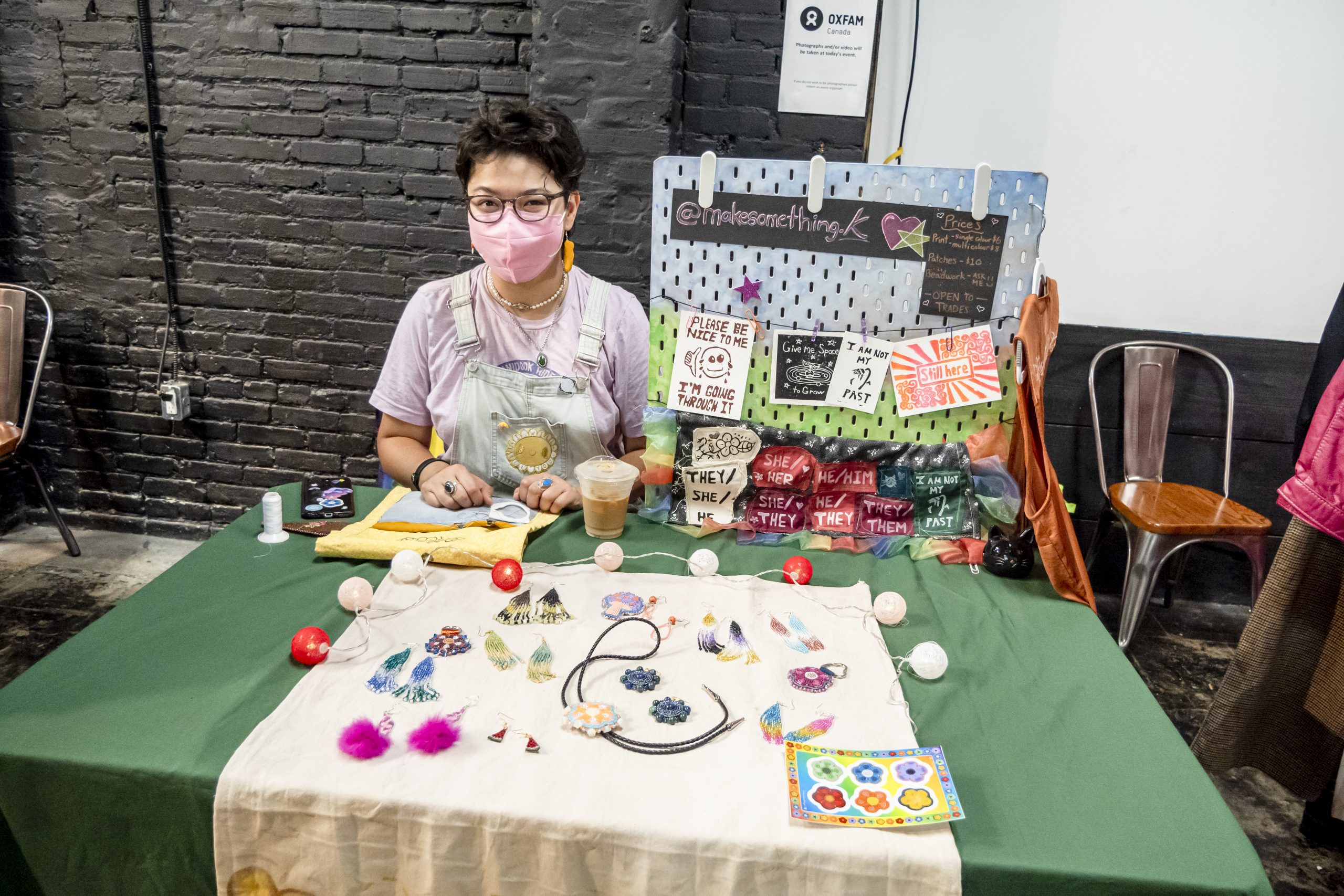
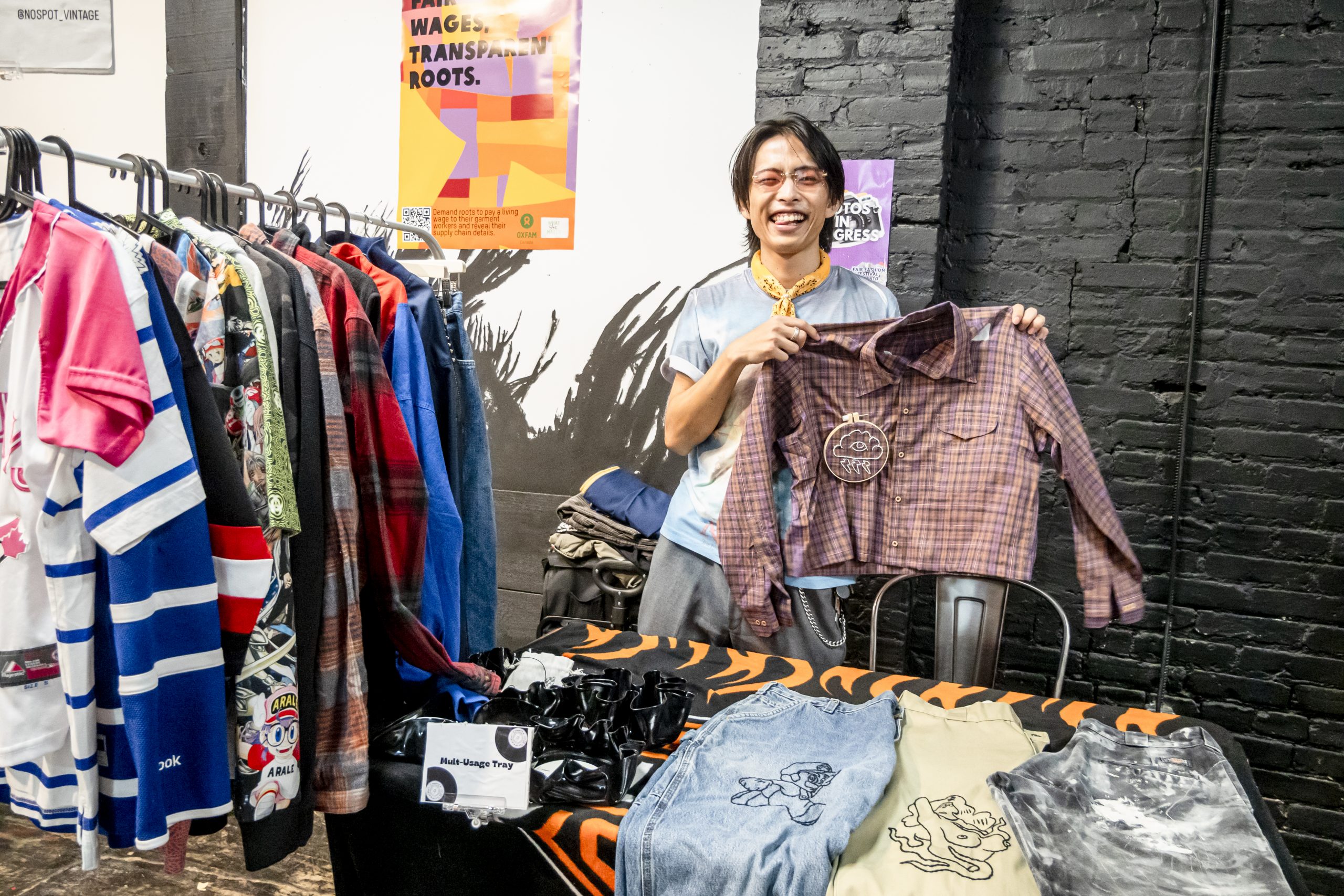
The Museum of Changemakers showcased sustainable and ethically produced fashion, offering festival-goers a chance to connect with advocacy groups, fashion designers, activists, and organizations working to promote a fossil fuel-free, human-centered fashion future. Sustainable vendors sold products supporting circular economy practices, human rights and environmental responsibility.
Oxfam hosted our popular Stitch for Change Challenge at the festival too! In this one-minute sewing challenge, participants tried to match the grueling pace of Cambodian garment workers who are expected to sew 10 t-shirt hems in under 60 seconds. This unique challenge invited consumers to experience the stark contrast between the work pressures and poor compensation of Cambodian garment workers compared to big Canadian fashion executives who can earn over $42,000 a day.
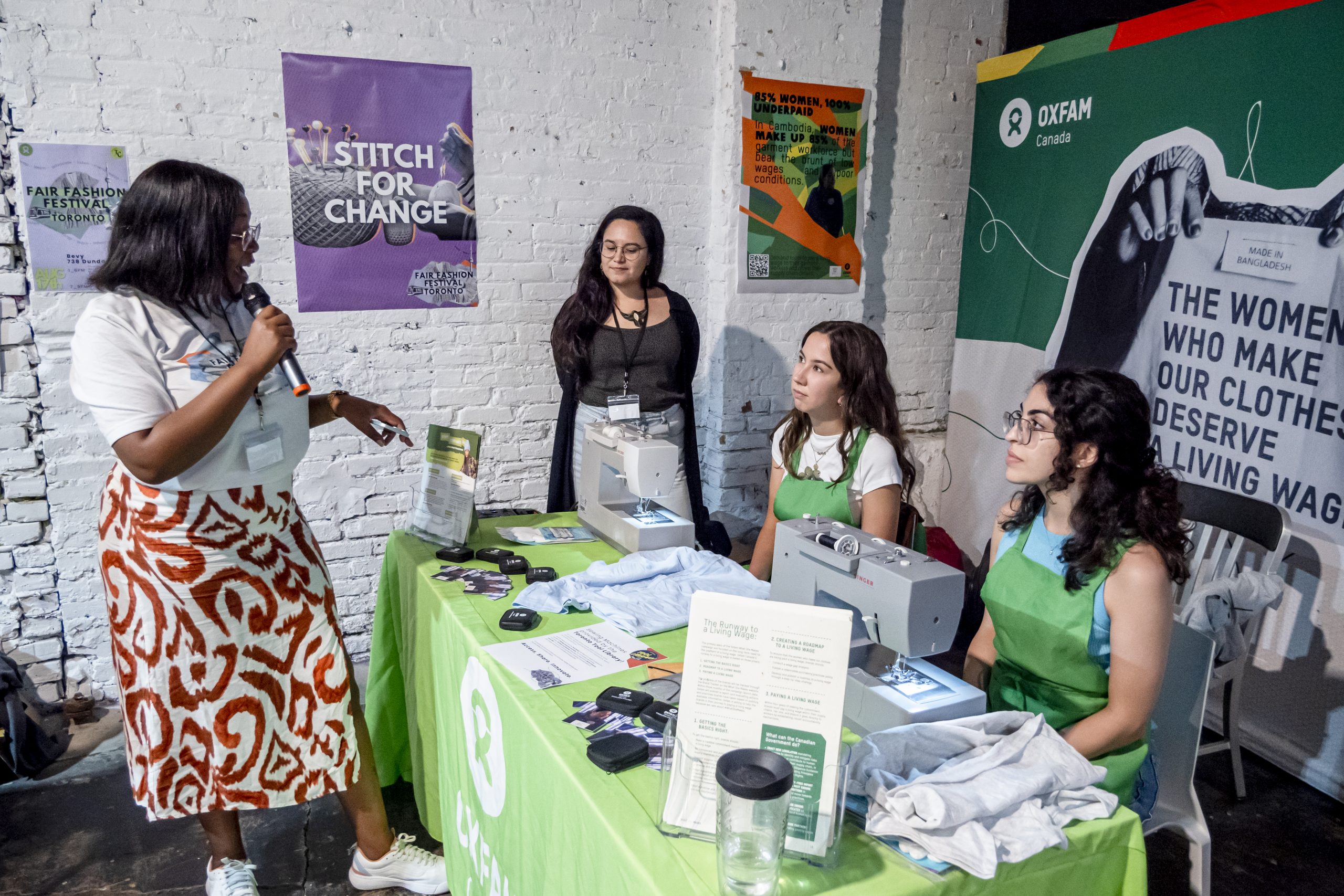
Two powerful panel discussions followed:
- The first panel, “What the fashion industry doesn’t want you to know about its human rights record” hosted by Oxfam Canada, featured Shane Moffat, Executive Director of the Canadian Network on Corporate Accountability; Gayathri Krishna, PhD candidate at McMaster School of Labour Studies; and myself as the Women’s Rights Policy and Advocacy Specialist at Oxfam Canada. We unpacked the staggering inequality in the industry, with Shane emphasizing, “It’s like fashion brands are playing a magician’s trick – they give us positive marketing with one hand, while the other writes contracts that pressure suppliers to cut costs and produce faster. This system generates big profits for shareholders in the Global North to live their best lives, while workers in the Global South struggle to meet their basic needs.”
- The second panel, ChangeMaking in Fashion, hosted by Threading Change, featured Laura McClure, Board member of Fashion Takes Action; Md. Arafat Ali Khan, Designers and Research Assistant at Seneca Polytech; and Threading Change’s Founder & Executive Director, Sophia Yang. They explored how to push for sustainable shifts in the fashion industry, inspiring attendees to take action.
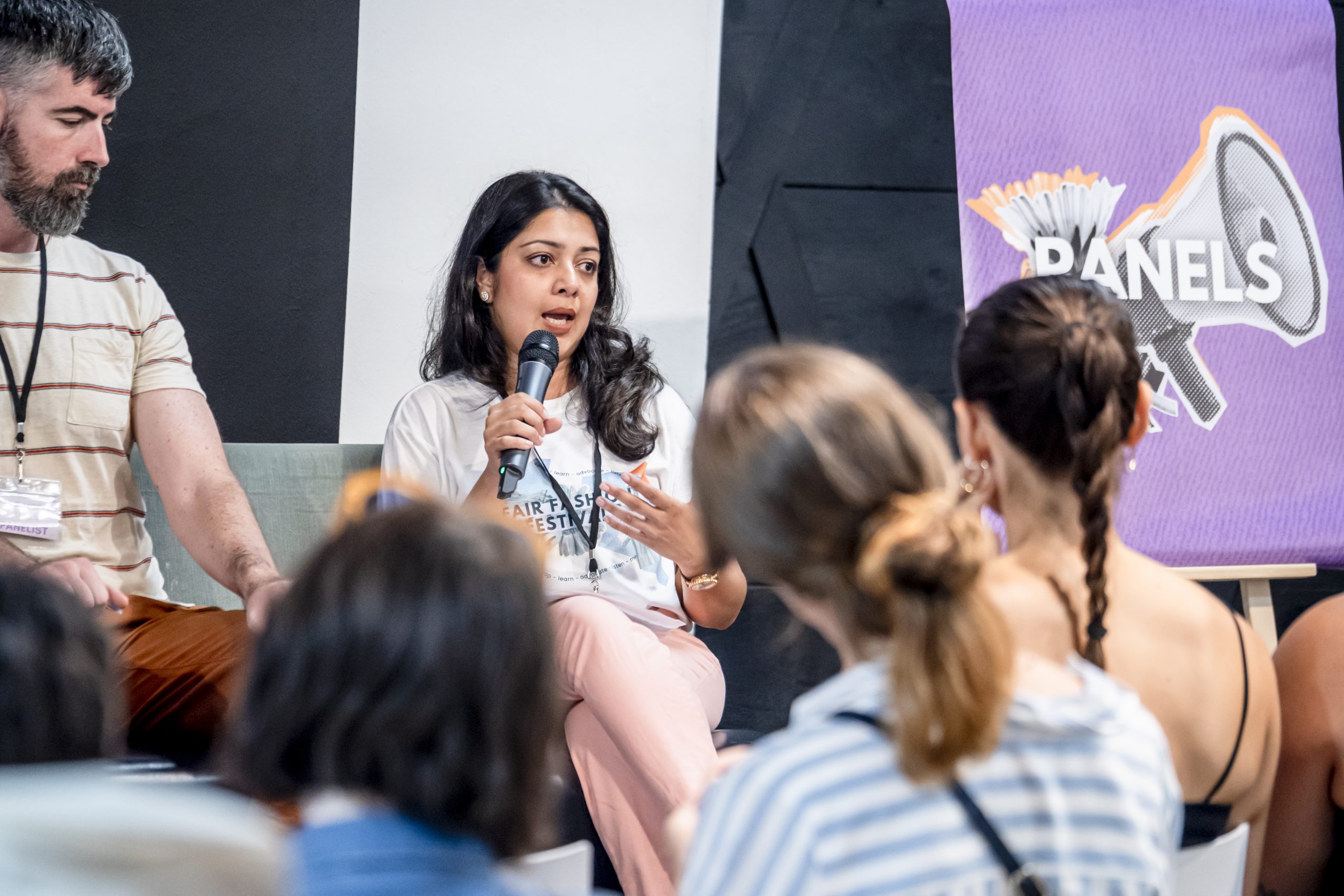
Workshops capped off the day, including a Write for Rights session where participants penned letters to Roots, urging the beloved Canadian fashion company to pay garment workers a fair wage and reveal more details about their supply chain. Another workshop on Extended Producer Responsibility (EPR) explored holding brands accountable for fair wages and reducing textile waste.
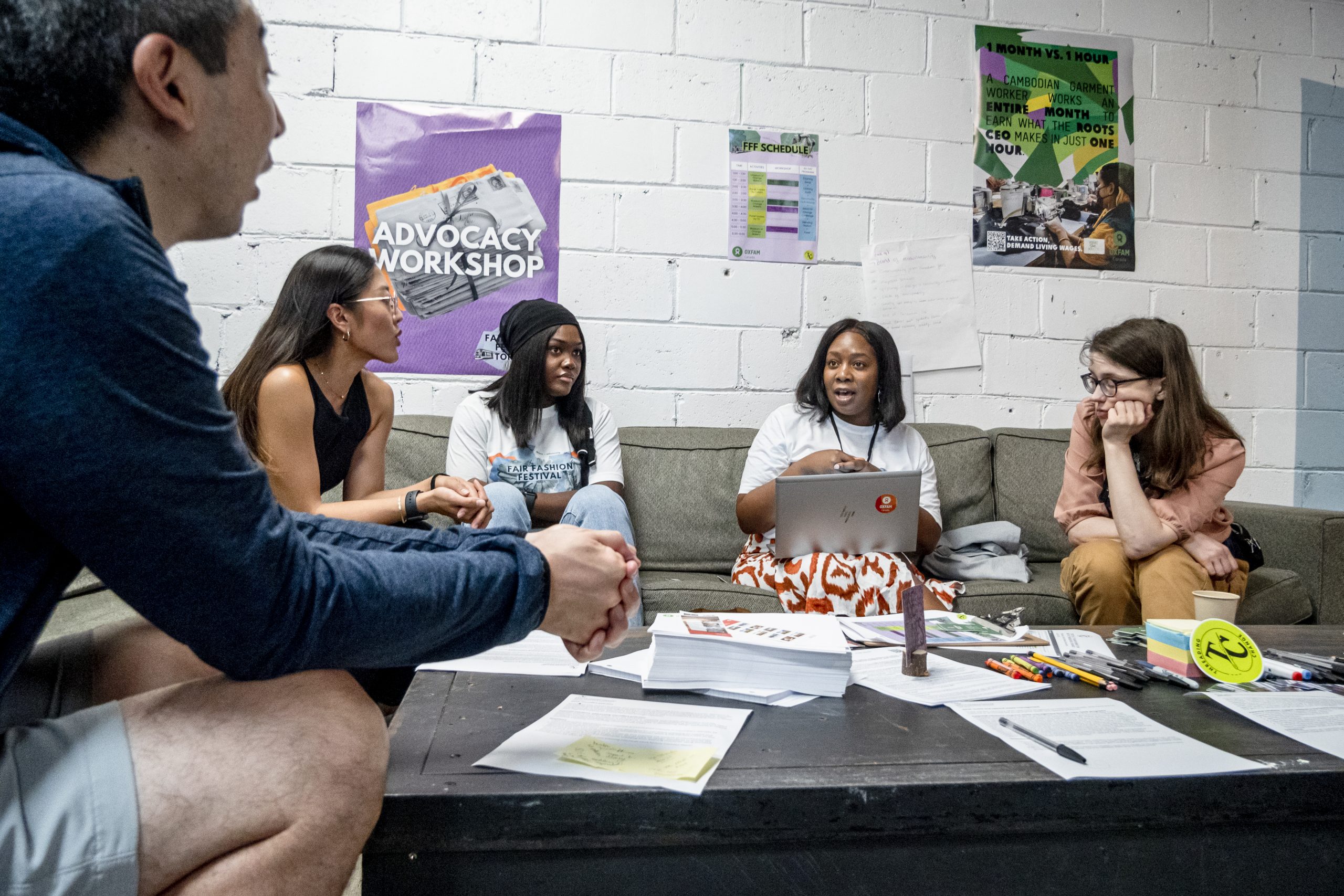
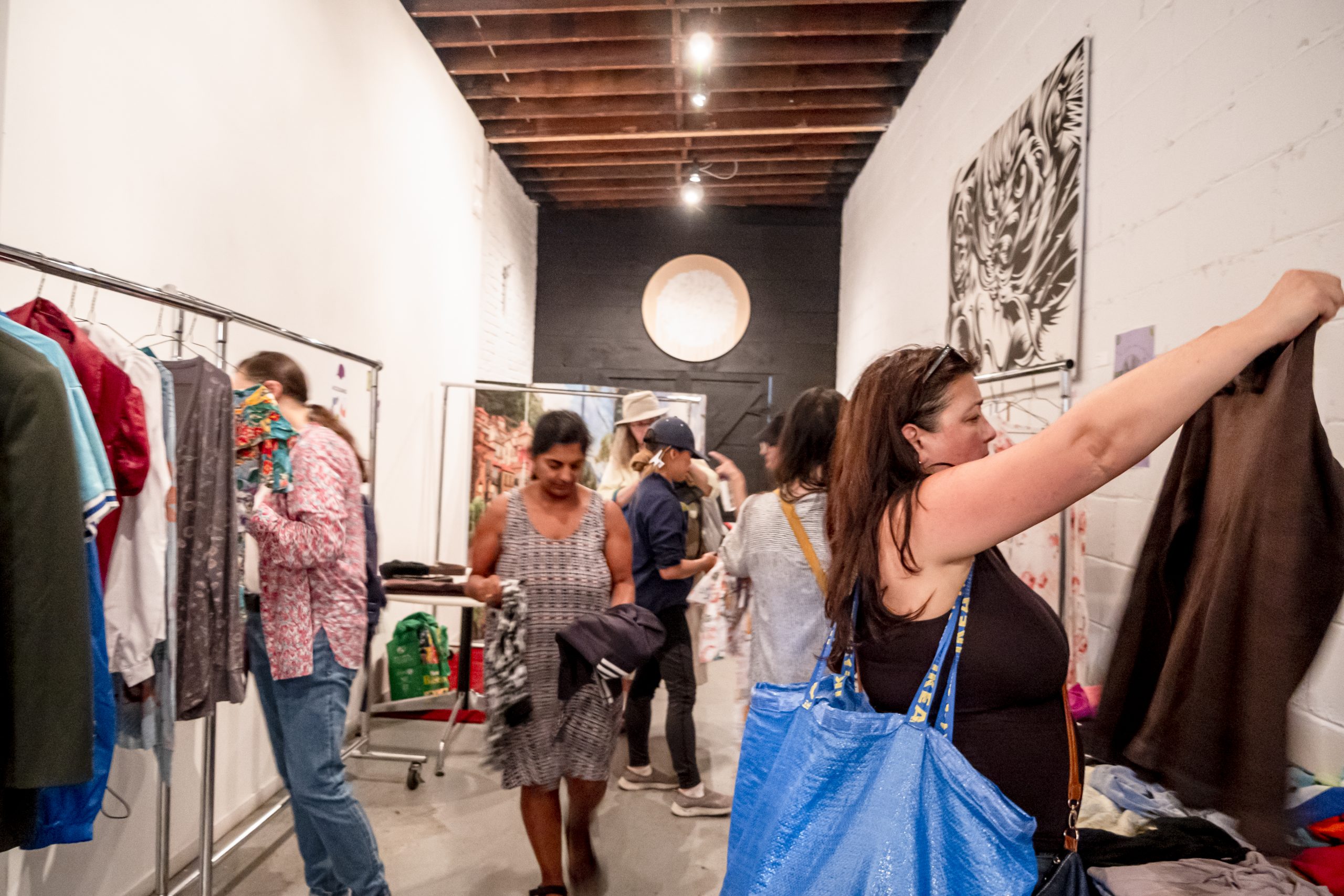
Mwangala Matakala, Oxfam’s Campaign Specialist, put it brilliantly, “The Write for Rights workshop was one of those wow moments – a simple but deeply impactful tool for activism. Writing letters may seem small, but it’s a way for individuals to use their voices collectively, pushing for action on the urgent need for fair wages and ethical practices.”
Lastly, attendees also enjoyed a lively Clothing Swap bringing their gently used clothing to swap with others.
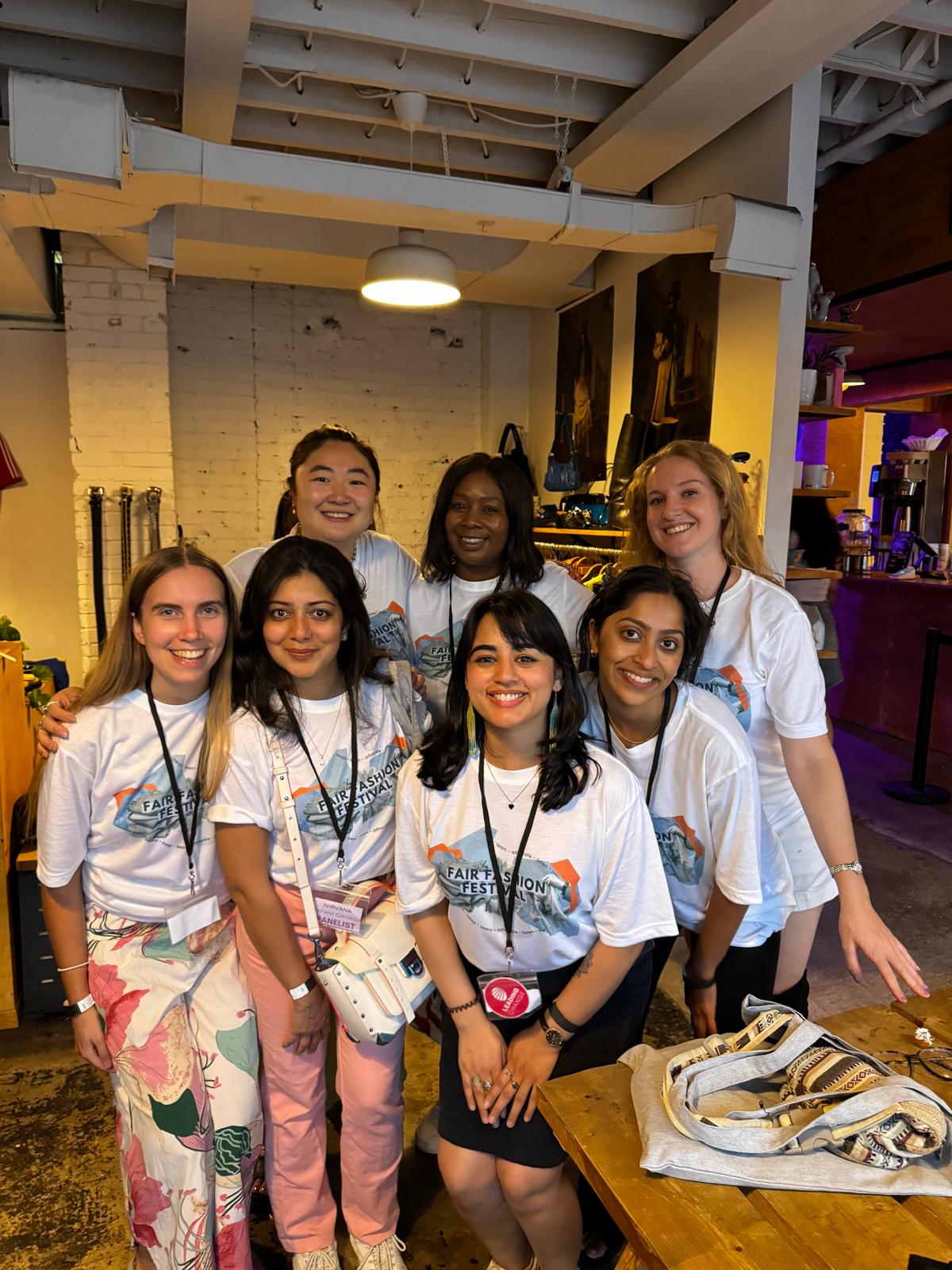
Ethical Fashion Meets Action in Halifax
Next, the Fair Fashion Festival travelled to Halifax, where Threading Change in partnership with Charlotte Genge of The Great Halifax Clothing Swap welcomed over 250 participants, including Oxfam Canada. A range of exhibitors, including local sustainability organizations and environmental advocacy groups brought ethical fashion and activism to life, immersing participants in discussions on sustainability and taking action. Attendees enjoyed workshops, clothing swaps, and engaging panels that addressed the textile crisis, ocean plastic pollution and community driven efforts to promote circular fashion, creating a vibrant atmosphere of learning and collaboration.
The energy was undeniable at both festivals, with participants immersing themselves in activities designed to push for fair fashion. From learning about sustainable production practices to advocating for living wages, the demand for justice in the fashion industry was loud and clear.
Mwangala perfectly summed up the spirit of the events: “Stitch by stich, youth are leading the charge for change in the fashion industry. At both festivals, I was struck by the incredible passion and power people brought to the table, demanding justice from the fashion industry”
Why you should join the call for Roots to Pay and Reveal!
At Oxfam we believe we need Canadian brands, such as Roots, to commit to paying a living wage to the women who make our clothes. Right now, Roots only requires its suppliers to pay the legal minimum wage, which can be as low as $1.49 per hour in some countries. In contrast, Roots CEO Meghan Roach last year earned $276 per hour. This stark inequality and wage disparity prevent the women who make our clothes from living a dignified life.
A minimum wage is not necessarily a living wage. Being paid a living wage means these women could afford the basics – food, rent, healthcare, education for their children and some discretionary income. They’re not asking for luxury, just a dignified life! We’re joining their cause and calling on Roots to commit to paying a living wage across its entire supply chain.
But it’s not just about wages. Roots has the most opaque supply chain, disclosing only the continents from which it is sourcing. Opaque supply chain disclosure limits the ability of consumers, governments, civil society and workers to verify company claims and hold companies accountable for poor purchasing practices, working conditions, human rights abuse and environmental degradation. Transparency lets us consumers and advocates ensure the workers are treated fairly.
Take action with us! Join our Pay and Reveal action to demand Roots to commit to a fairer, more transparent and equitable fashion future.
Check out Threading Change’s blog post penned by Threading Change's Creative Content Specialist Sara McQuaid, where they explore how youth activism is reshaping the future of ethical fashion.

